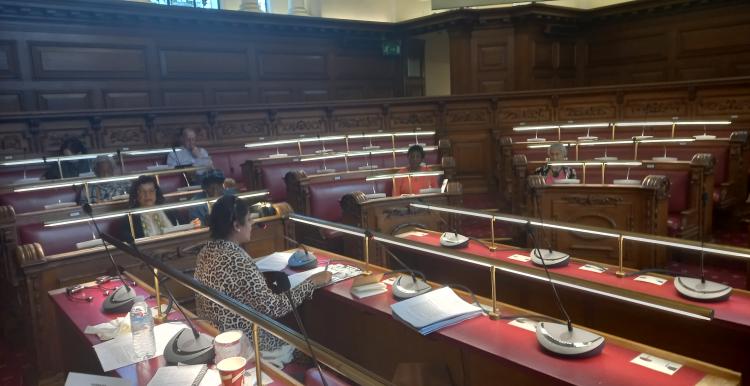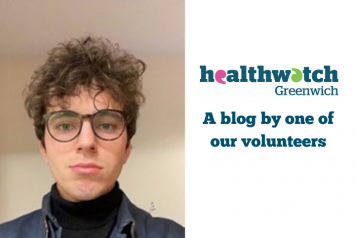Disconnected: How digital exclusion is deepening health inequalities

Sarah, an 85-year-old member, told us: "Not everyone can afford a laptop, not everyone can afford a smartphone. How can they expect us to book online appointments or even just self-refer?" Others spoke about not having access to digital devices and how living on low fixed incomes or just the state pension, made the cost of buying digital devices, and internet connectivity impossible.
As health and care services increasingly move online, those without access to digital devices or the internet are left at a disadvantage. This lack of access creates health inequity, particularly for older adults who may already be facing other social and economic challenges. Martha, pointed out the growing reliance on digital platforms for accessing information.
The council has the Greenwich Directory online, but what about those of us who can’t access it online?
For many older adults, the inability to navigate or even access online resources means missing out on vital information. This lack of access can lead to delayed care or advice, contributing to poorer health outcomes and widening health inequalities. Members of the Pensioners Forum told us the move towards greater digital resources and digital as a way to access services contributes to social isolation and a sense of being ignored.
I’ve paid taxes all my life and feel I get nothing in return. I feel forgotten.
Not being able to access services online reinforces feelings of being disconnected from the wider community and from local health and care organisations.
Digital exclusion increases existing health inequalities by disproportionately affecting those who are already vulnerable, and the growing shift to online systems for booking appointments, accessing health records, and finding information creates barriers for those who do not have the skills, resources, or opportunities to use these technologies.
Response from Royal Borough of Greenwich
We recognise the feelings that have been expressed in this report and understand that more work needs to be done to build trust between our services and residents who seek to access them. This includes improving the way we design, commission, and improve health and social care services so that they recognise and address barriers to access.
In designing our new Assistive Technology Enabled Care service, we co-designed the service with residents so that concerns around digital exclusion could be addressed from the very start. This included workshops, interviews and regular design sessions with residents. We have since taken the time to ratify what we have learned with different community groups, including the Pensioners Forum and other community groups who face increased barriers to accessing health and social care services. By understanding the barriers people face to accessing services, we aim to deliver an assistive technology service that is accessible to all and showcases the positive contributions that technology can have in health and social care. This includes making provision for those who do not have broadband in the home.
With regards to the Greenwich community directory, similar feedback was received during their design phase. As such, provision has been made for the directory to be accessed through Livewell Greenwich via their telephone helpline. Individuals can therefore benefit from the Greenwich Community Directory without needing to access it online.
On your wider points on digital inclusion, we fully recognise that the direction of many services going online can feel isolating to some. While we as a council can't influence every part of our system, we're fully committed to continuing to offer non-digital channels for all our care and other services. We also offer help for our residents to get online; this includes training Digital Champions at Woolwich Common Community Centre and Clockhouse Community Centre and giving digital devices to digitally excluded residents. We'd love to engage Healthwatch in the design of our digital inclusion strategy, which we'll be engaging on over the next 6 months with residents and partners working across health and social care

